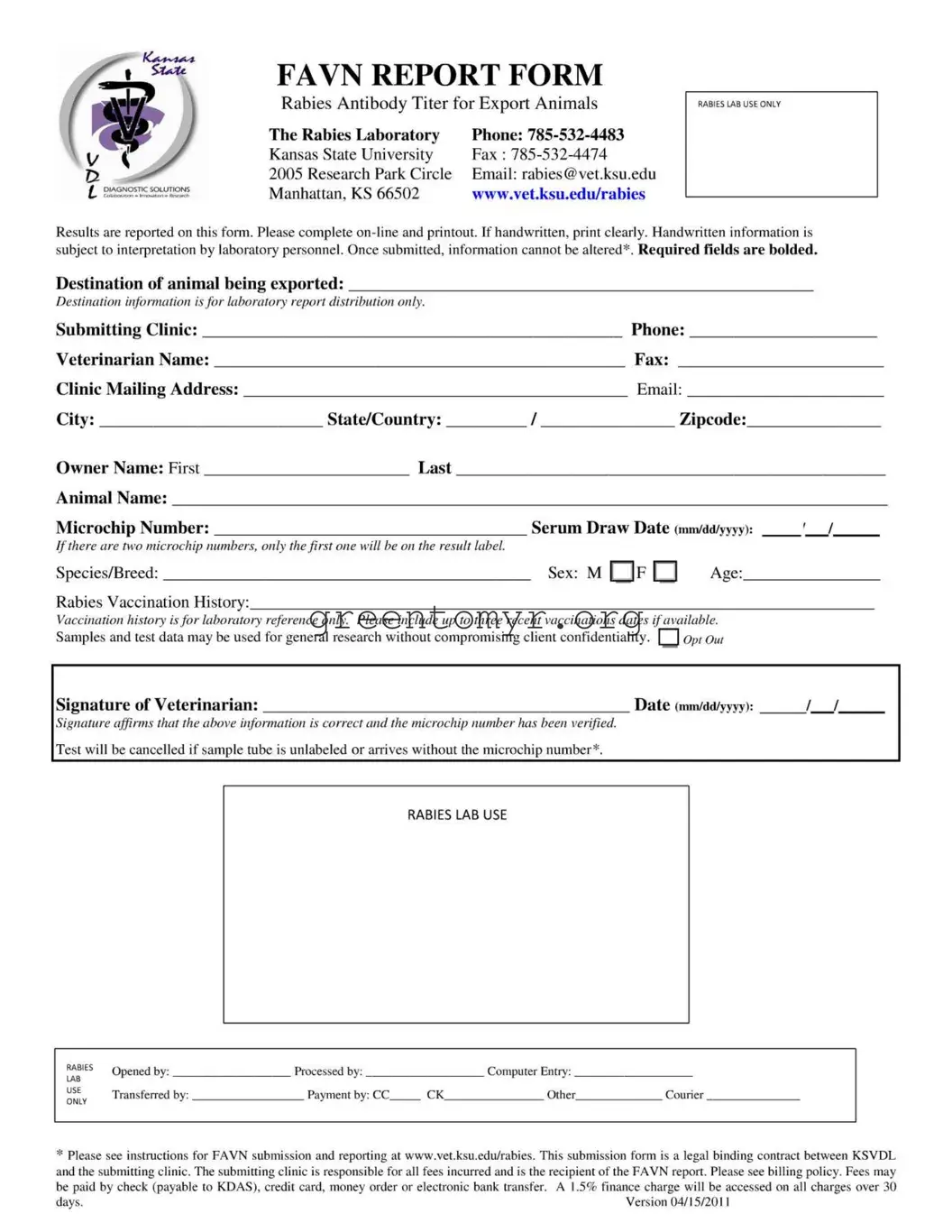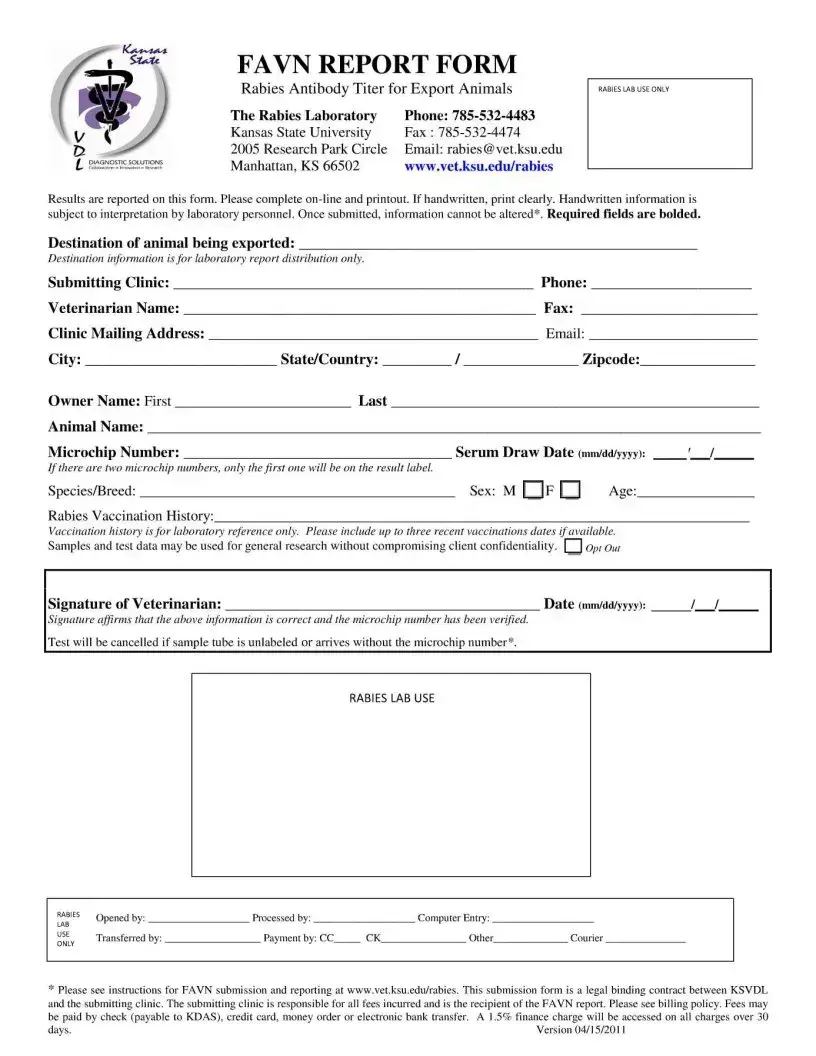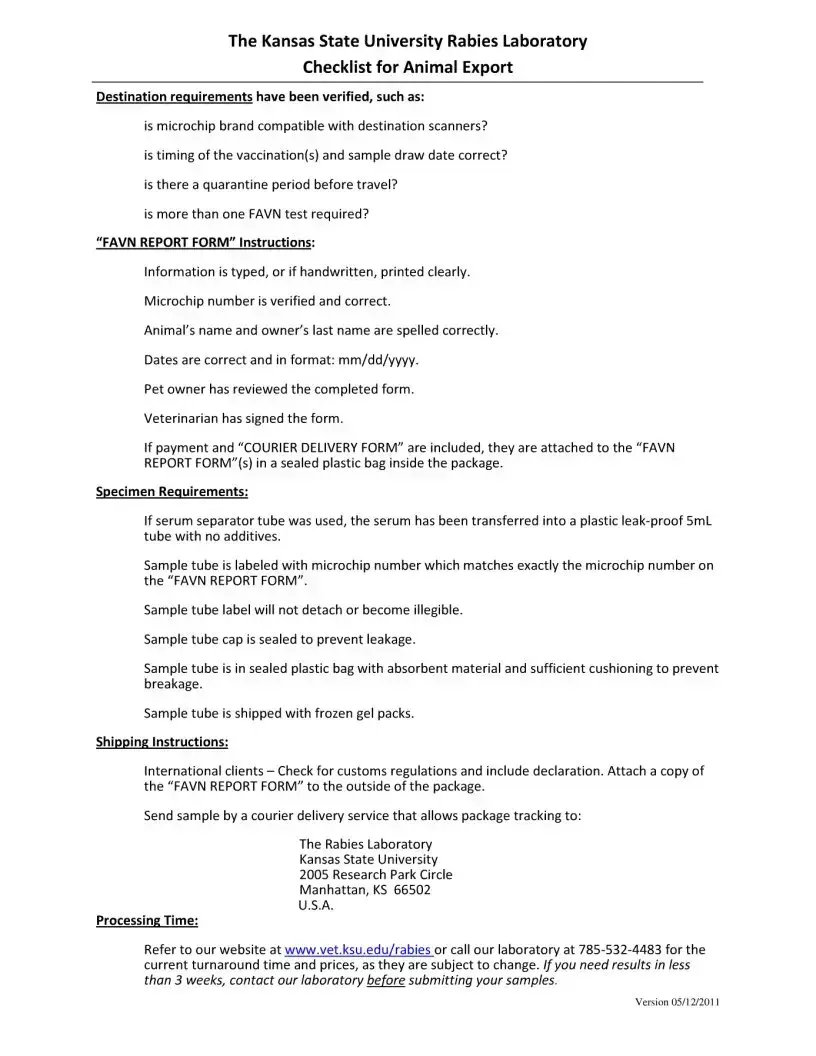The Kansas FAVN Report Form plays a crucial role in the rabies antibody testing process for animals being exported. This document serves as a centralized source for recording and conveying essential information about both the animal and its vaccination history. The form must be completed online or printed clearly, as any handwritten details could be misinterpreted by laboratory personnel. Specific required fields are bolded to ensure that critical information is not overlooked. Included in the report are sections for the submitting clinic’s contact details, the animal’s identification—such as microchip number, species, and breed—as well as the rabies vaccination history, which is important for laboratory reference. The form also emphasizes the importance of verifying the microchip number, which must match the submitted sample, as discrepancies could result in test cancellations. Alongside the logistical requirements for submission, such as labeling and shipping instructions, the form outlines payment details and responsibilities, reinforcing that the submitting clinic is liable for all incurred fees. Proper completion of this form not only facilitates the safe export of animals but also ensures compliance with import destination requirements, including potential quarantine measures and additional testing necessities.


